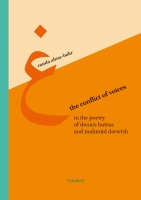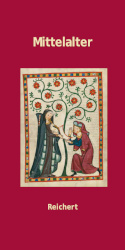Search
The Conflict of Voices in the Poetry of Dennis Brutus and Mahmud Darwish
A Comparative Study
2004
17.0 x 24.0 cm, 224 p., hardback
ISBN: 9783895003721
17.0 x 24.0 cm, 224 p., hardback
49,00 €
ISBN: 9783895003721
Short Description
A comparative analysis of the work of the South African poet Dennis Brutus (1924-2009) and the Palestinian poet Maḥmūd Darwīsh (1942-2008), this study aims to demonstrate how a conflict of voices in their poetry emerged and developed across four stages, covering a period from the mid-1960s to the mid-1990s. Based on a critique of theories proclaiming the ‘death of the author’, a productive approach to voice is elaborated while taking a modifying perspective on aspects such as ‘lyricism’, ‘polyphony’, and ‘impersonality’.Description
No english description available. Showing german descriptionThis book undertakes a comparative analysis of the conflict of voices in the poetry of the South African poet Dennis Brutus (b. 1924), and the Palestinian poet Mahmūd Darwīsh (b. 1942), with the purpose of demonstrating that the conflict of voices in their poetry develops across four stages during the period extending from the mid-sixties to the mid-nineties. Although the study reveals that during each stage, the two poets’ poetry shows similarities in broader terms, the analysis demonstrates that within each stage, each of the two poets develops techniques that are peculiarly his own. The study also maintains a link between the development of the conflict of voices in the poetry and the larger conditions influencing the changes occurring on the social and political levels in both South Africa and Palestine.
The study falls into five chapters, an introduction and a conclusion. The first part of Chapter One is both a critique of the basic tenets of the theories of impersonality and the death of the author, and an attempt to show how the concept of voice developed from the writings of the major exponents of those theories. The second part of the chapter outlines the critical framework the study is conducted within, which is an eclectic framework deriving from the work of mainly North American critics who have developed the concept of voice, subjectivity and impersonality in their writings. Each of the following four chapters is concerned with tracing the development of the conflict of voices in a distinct stage. Chapter Two deals with the ‘pre-conflict’ stage, and demonstrates how the poetry here shows a wavering between pure lyricism and extreme impersonality. Chapter Three represents the stage of eruption of the conflict of voices and the appearance of polyphonic structures. Chapter Four deals with the stage of withdrawal of both the conflict and lyricism, and the predominance of impersonal structures. The fifth chapter deals with the fourth stage of development. It represents a partial resolution of the conflict which had shaped the two pots’ poetry in the preceding three stages by highlighting a synthesis of the formerly conflicting voices in a modified type of lyricism.
The study is the first attempt to deal with the poetry if Dennis Brutus and Mahmūd Darwīsh in a comparative framework, and is also the first lengthy study of the aspect of voice in the poetry of either poet. While the study hopes to be considered a contribution to the scholarship of each poet, it also hopes to have made it possible for other comparative studies approaching Arabic and sub-Saharan African literatures to emerge.




 Table of Contents
Table of Contents

 Neuerscheinungen 2023/2024
Neuerscheinungen 2023/2024
 Gesamtverzeichnis 2023/2024
Gesamtverzeichnis 2023/2024
 Katalog Oriental Studies & Linguistics
Katalog Oriental Studies & Linguistics
 Mittelalter
Mittelalter
 Deutsche Inschriften
Deutsche Inschriften
 Musiktherapie
Musiktherapie
 Literaturen im Kontext
Literaturen im Kontext